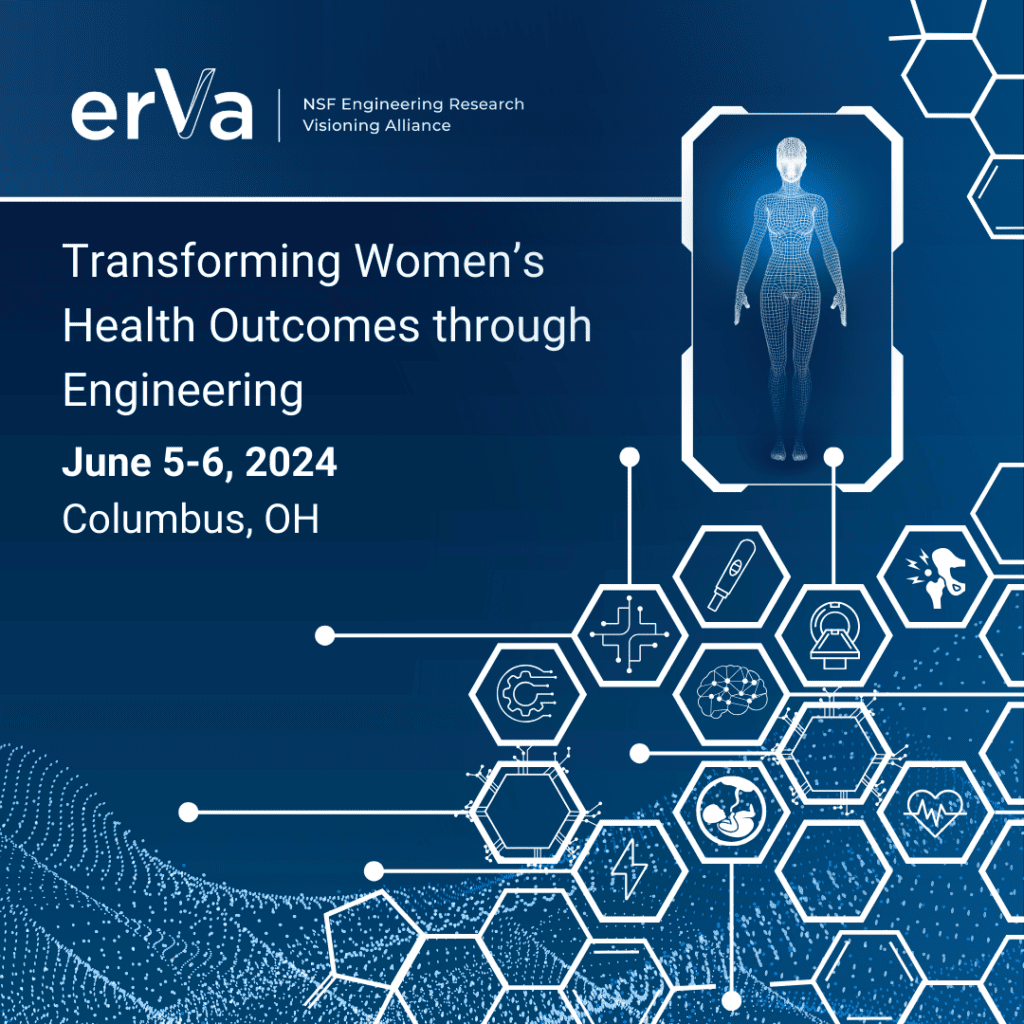
June 5-6, 2024
Columbus, OH
This is an in-person visioning event for one and a half days.
This visioning event will convene top researchers from various sectors to discuss and articulate the engineering research roadmap with the highest potential for positive societal impact in women's health technologies.
This event is intended for transdisciplinary experts with respect to engineering disciplines, sectors, and stakeholders interested in women's health outcomes, including researchers, industry professionals, nonprofits, and venture capital firms. This is an opportunity for you to impact the nation’s engineering research priorities in this important topic.
Overview
Engineering, which uses technological developments to solve societal problems, may hold the key to seemingly intractable biomedical challenges. The engineering toolkit contains laboratory-based and computer-based problem-solving methodologies, from fundamental research to clinical medicine. Women’s health presents a multitude of biomedical challenges, incorporating both female sex- and gender-specific conditions and the many diseases and chronic disorders that affect women differently or disproportionately. Such conditions may be difficult to study using traditional research techniques: timescales associated with chronic diseases can be longer compared with typical laboratory experiments; mimicking complex human hormonal cycling and sexual development time course is challenging in cellular and animal experiments; human reproductive tissues are often unavailable for experimentation. Moreover, engineering offers the potential to mitigate sociocultural impacts on women’s health and broaden health equity. This event will bring together experts from across engineering, including those in research-based experimental methods (organoids and micro physiological systems), patient-focused novel devices (point-of-care diagnostics and wearables), computational models (digital twins and biological systems), and artificial intelligence (machine learning including medical imaging and natural language processing), to evaluate the landscape for novel applications across the range of women’s health conditions.
Specifically we will focus on eight subthemes:
- Prenatal to puberty
- Reproductive years related to pregnancy
- Reproductive years not related to pregnancy
- Pre-, peri-, and post-menopausal
Technology fields
- AI/imaging
- Computer modeling
- Diagnostic technologies/devices
- Tissue engineering/microfluidics
ERVA is now accepting nominations for visioning event participants. Nominees are strongly encouraged to provide a short statement on where engineering resources are most needed to transform women's health outcomes. Please follow the link below to nominate yourself or a colleague.
Decisions regarding nominee invitations to participate will be guided by the overall objective of ensuring a successful visioning event. Following a review of nominations, ERVA will notify candidates who are selected to participate. This could also include further contributions during or beyond the scope of the visioning event. Those nominees not selected for this event will be considered, as appropriate, for future ERVA visioning events and other activities.
The Engineering Research Visioning Alliance (ERVA), an initiative funded by the National Science Foundation Engineering Directorate, hosts visioning events to roadmap critical areas of engineering that can have a significant impact. The goal of the event is to collectively develop a strategic plan spanning the next 10-20 years of high-impact, high-reward, pre-competitive engineering research-led opportunities that will advance United States competitiveness. The event outcomes will inform future research directions/resourcing across the nation in industry, academia, federal agencies, national labs, and other stakeholders.
Stages of a woman's life